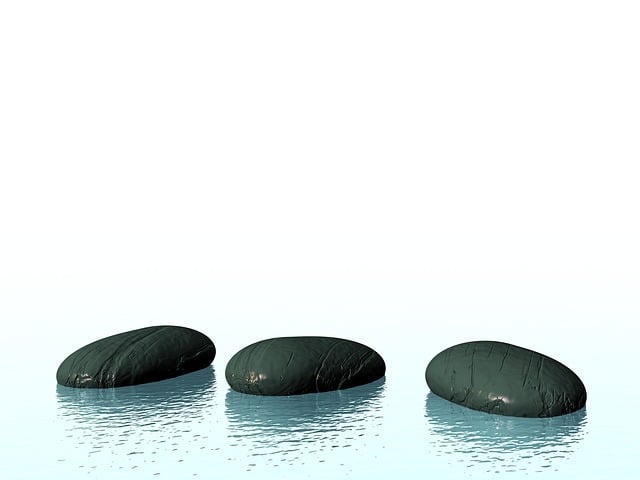Cold plunging, a natural remedy for stress and anxiety, involves brief exposures to frigid temperatures, stimulating endorphin release and reducing cortisol levels. Combining this with mindfulness techniques like breathing or meditation enhances mental clarity, emotional balance, and deep relaxation. Regular cold water immersion can significantly lower anxiety, foster overall relaxation, and act as a game-changer in managing modern life's stresses. Start with brief plunges, gradually increase duration, and combine with mindfulness for optimal calming effects on both mind and body.
“Unwind and rejuvenate with the powerful combination of cold plunges and mindfulness—a duo that promises profound relaxation and stress reduction. This article explores how immersing yourself in cold water can be a game-changer for mental health, offering insights into its impact on stress and anxiety. We’ll uncover mindfulness practices to amplify these benefits, highlighting practical tips for integrating cold exposure into your routine. Discover the calming effects of cold plunges and learn how they can help you achieve deeper relaxation.”
Understanding Cold Plunges and Their Impact on Stress and Anxiety
Cold plunges, or immersing oneself in cold water, have gained attention as an effective method to combat stress and anxiety. This therapy involves briefly exposing your body to frigid temperatures, typically through a cold shower, ice bath, or even a quick dip in a cold body of water like a lake or river. The practice may seem extreme, but it has profound effects on the mind and body, offering a natural way to reduce stress levels and alleviate symptoms of anxiety disorders.
The benefits are attributed to the physiological response triggered by cold exposure. When you immerse yourself in cold water, your body releases endorphins, often referred to as ‘feel-good’ hormones, which act as natural painkillers and promote relaxation. This immediate reaction is accompanied by a decrease in cortisol, the stress hormone, leading to a calmer mindset. The calming effects of cold plunges can provide an instant sense of tranquility, helping individuals manage anxiety symptoms and promoting mental well-being.
Mindfulness Practices to Enhance Cold Water Therapy for Mental Health
Combining mindfulness with cold plunges offers a powerful way to enhance mental well-being and promote deep relaxation. Mindfulness practices, such as focused breathing, meditation, or simply paying attention to your senses, can significantly amplify the stress-relieving and anxiety-reducing benefits of cold water therapy. During a cold plunge, engaging in mindfulness allows you to fully immerse yourself in the present moment, shifting your focus away from stressors and towards the calming sensations of cold water.
This practice facilitates a physiological response that promotes mental clarity and emotional balance. The cold exposure triggers a release of endorphins, often referred to as “feel-good” hormones, which can reduce feelings of stress and anxiety. Additionally, mindfulness techniques enhance your awareness of bodily sensations, enabling you to recognize and let go of tension, further deepening the relaxation response induced by cold water immersion.
Unveiling the Benefits of Cold Plunges for Achieving Deeper Relaxation
Unveiling the Benefits of Cold Plunges for Achieving Deeper Relaxation
Cold plunges, or immersing oneself in cold water, have emerged as a powerful tool for enhancing mental health and stress relief. The practice, which involves briefly exposing the body to frigid temperatures, offers a unique approach to calming both mind and body. By contrasting with the warmth of your skin’s temperature, cold water triggers a physiological response that stimulates the release of endorphins, often referred to as ‘feel-good’ hormones, contributing to improved mood and reduced stress levels.
Beyond this initial reaction, regular cold plunges can significantly impact anxiety reduction and overall relaxation. The calming effects extend beyond the physical, reaching deep into the mind. Mindfulness, when combined with these cold immersions, amplifies their benefits. Pausing to focus on the sensory experience of cold water touching your skin, you cultivate a heightened state of awareness, encouraging the mind to let go of anxious thoughts and worries. This practice fosters a profound sense of calm, making it an effective technique for managing stress and anxiety in today’s fast-paced world.
Practical Tips for Integrating Cold Exposure into Your Routine for Anxiety Reduction
Integrating cold exposure into your daily routine can be a powerful tool to combat stress and anxiety. Start small by incorporating brief cold plunges, like a cold shower or immersing your face in ice water, for just 30 seconds to a minute. Gradually increase duration as you build tolerance. Consistency is key; regular practice can enhance your body’s natural stress response and promote mental resilience.
For optimal calming effects, combine these practices with mindfulness techniques such as deep breathing or guided meditation. Step into a cold plunge, focus on your breath, and observe your mind and body’s reaction. This dual approach of physical cooling and mental engagement can lead to profound relaxation, reducing anxiety symptoms and enhancing overall well-being.
Combining cold plunges with mindfulness practices offers a powerful approach to achieving deeper relaxation and managing stress and anxiety. By immersing yourself in cold water and focusing your mind through mindfulness techniques, you can enhance the therapeutic benefits of cold water therapy for mental health. This simple yet effective method has been shown to significantly reduce stress levels, promote calming effects, and foster a sense of tranquility. Integrating cold exposure into your routine may be just what you need to take control of your anxiety and embark on a journey towards profound relaxation and improved well-being.
